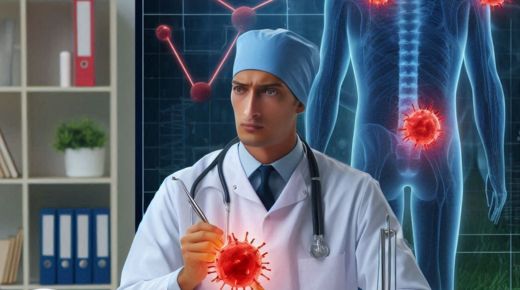The Role Of Pain Management Specialists In Treating Cancer Pain
Cancer pain can be overwhelming. It affects daily life and well-being. Many find relief with the help of a board certified pain management physician in Arlington, VA. These specialists play a vital role in easing pain. They understand the complexities of cancer pain. Through careful assessment, they tailor treatments to each person’s needs. By doing so, they improve comfort and quality of life.
Understanding Cancer Pain
Cancer pain comes from different sources. It can be due to the cancer itself, treatments, or related conditions. The pain may be constant or come and go. It can be mild to severe. Pain management specialists work to identify and address these various sources.
Approaches to Pain Management
Effective pain management involves a mix of therapies. Specialists use:
- Medications: Opioids, non-opioids, and adjuvant drugs.
- Procedures: Nerve blocks and spinal cord stimulators.
- Non-Drug Therapies: Physical therapy, acupuncture, and counseling.
Each approach has its benefits and potential drawbacks. The aim is to find the best combination for each person. For more detailed information on pain management techniques, visit the National Cancer Institute.
The Importance of a Multidisciplinary Team
Pain management specialists collaborate with a team. This team includes oncologists, nurses, and therapists. By working together, they ensure a comprehensive approach to care. This collaboration allows for:
- Better coordination of treatments.
- Continuous evaluation and adjustment of pain management plans.
- Support for emotional and psychological needs.
Comparing Pain Management Strategies
Below is a simple comparison of common pain management strategies:
| Strategy | Benefits | Considerations |
| Medications | Quick relief, various options | Potential side effects |
| Procedures | Targeted, long-lasting relief | Invasive, requires expertise |
| Non-Drug Therapies | Holistic, few side effects | May require more time |
Advancements in Pain Management
New technologies and research are changing pain management. Techniques like nerve ablation and personalized medicine are emerging. These advancements offer hope for better pain control. The Mayo Clinic provides insights into some of these emerging technologies.
Conclusion
Effective cancer pain management requires a skilled specialist. A pain management doctor can make a significant difference in quality of life. Their expertise, combined with ongoing advancements, offers relief and hope. Seeking help from a qualified specialist is a crucial step in managing cancer pain successfully.

